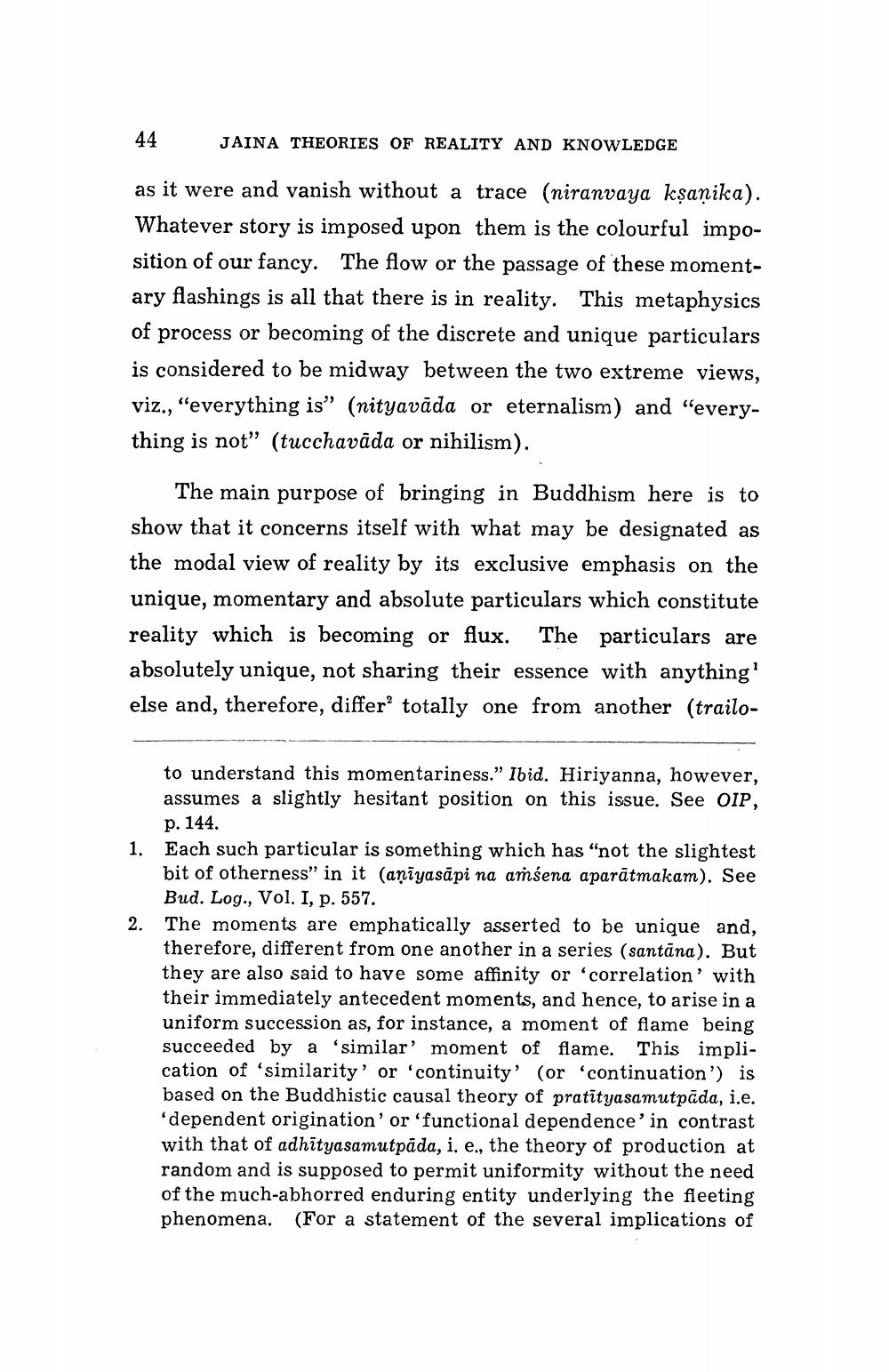________________
44
JAINA THEORIES OF REALITY AND KNOWLEDGE
as it were and vanish without a trace (niranvaya kṣanika). Whatever story is imposed upon them is the colourful imposition of our fancy. The flow or the passage of these momentary flashings is all that there is in reality. This metaphysics of process or becoming of the discrete and unique particulars is considered to be midway between the two extreme views, viz., "everything is" (nityavada or eternalism) and "everything is not" (tucchavada or nihilism).
The main purpose of bringing in Buddhism here is to show that it concerns itself with what may be designated as the modal view of reality by its exclusive emphasis on the unique, momentary and absolute particulars which constitute reality which is becoming or flux. The particulars are absolutely unique, not sharing their essence with anything' else and, therefore, differ' totally one from another (trailo
to understand this momentariness." Ibid. Hiriyanna, however, assumes a slightly hesitant position on this issue. See OIP, p. 144.
1. Each such particular is something which has "not the slightest bit of otherness" in it (aniyasapi na aṁśena aparātmakam). See Bud. Log., Vol. I, p. 557.
2. The moments are emphatically asserted to be unique and, therefore, different from one another in a series (santāna). But they are also said to have some affinity or 'correlation' with their immediately antecedent moments, and hence, to arise in a uniform succession as, for instance, a moment of flame being succeeded by a 'similar' moment of flame. This implication of 'similarity' or 'continuity' (or 'continuation') is based on the Buddhistic causal theory of pratityasamutpada, i.e. 'dependent origination' or 'functional dependence' in contrast with that of adhityasamutpada, i. e., the theory of production at random and is supposed to permit uniformity without the need of the much-abhorred enduring entity underlying the fleeting phenomena. (For a statement of the several implications of




